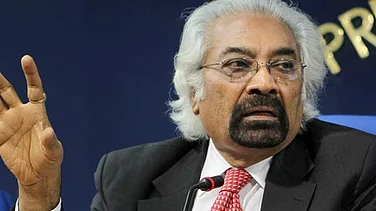Since Narendra Modi became India’s Prime Minister in May 2014, there have been allegations and intermittent protests over the regime’s violation of basic human rights, blatant use of state machinery for censoring critics, and use of both state institutions and Hindutva activists to suppress religious freedom. The criticism against Narendra Modi both within and outside the country for failing to uphold secular democratic values and scientific temper in the country had done little to dent his popularity among his support base. Even his abrupt decision to impose a draconian ban on cash on November 8, 2016 caused immense misery to the poor, but they voted for him overwhelmingly in the UP election.
Advertisement
A few months ago, opposition parties and Modi critics had lost the hope of getting any success in electorally taking on ‘Teflon’ Modi. His re-election in 2019 was almost certain. But, a couple of months are enough to make or break anyone’s aura of invincibility in Indian politics. What the decline of political and social values had not been able to do in the three years, the decline of economy has done in three months.
India’s economic growth has slowed down considerably in the last two quarters forcing the Reserve Bank of India and international credit rating agencies to lower growth forecasts for 2017-18. Even when growth was in better shape in 2014-2016 it failed to create enough jobs, but with the slowing down of the economy post-demonetisation period, a large number of jobs, particularly in manufacturing and construction sectors are disappearing as well. India’s agricultural sector continues to be in deep crisis, and farmers across various states in India are protesting over the past several months demanding help and support from the government.
Advertisement
Coinciding with a declining economy, increasing unemployment and a deficient monsoon, India is seeing a self-confident and ready-for-politics Rahul Gandhi for the first time. His interactions last month with students and faculty at Berkeley and Princeton have certainly helped his image. After a long time, Rahul Gandhi started to get positive headlines in national newspapers. Political commentators have begun to see him as a serious politician. His defiant ‘bullock cart’ campaign against BJP in Narendra Modi’s home state Gujarat has not only brought hope for his party in the coming election, but also has portrayed him as a leader who is ready to lead and able to outsmart his opponents in performing political stunts.
With Narendra Modi’s anointment as a prime ministerial candidate in 2013, BJP had started to target Rahul Gandhi personally, and Modi himself had never missed any opportunity to poke fun at him in the campaign, calling him ‘Shahzada’ while contrasting it with his own ‘Chaiwala’ background. In spite of Rahul Gandhi’s education at Harvard University and an M.Phil. degree in Development Studies from Cambridge University, BJP leaders and its support groups in traditional and social media have continued to lampoon him as an incompetent and dumb prince-ling, who is reluctant to take the responsibility but eager to enjoy power. This shrill personal campaign against him doesn’t seem to be cutting ice with the Indian middle class and youth now, who are the backbone of the 2014 Modi juggernaut. The significant electoral success of NSUI in the last month student union elections of Delhi University, Punjab University and Rajasthan University indicate a rethink on the part of country’s youth.
Advertisement
In January this year, I had written an op-ed for the website Daily O explaining the potential of Rahul Gandhi being India’s Justin Trudeau and how it is only a matter of one electoral success. This piece had then brought me a deluge of derision in social media. Since 2013, it had been almost impossible to see any positive write-up for Rahul Gandhi in the Indian media. However, the wind seems to have started to change its direction.
To take the advantage of the shifting political wind in the country, Congress Party needs to act as a concerted, coherent opposition. For that, it needs to be led from the front by one leader to avoid any scope of confusion in policy and decision-making. The Congress needs an acceptable and aggressive face with ideological clarity, someone who can rally grassroots workers and regional leaders alike, and someone who can create and deliver a message that can be widely supported and forceful enough to rattle opponents. In the party, there is no one except Rahul Gandhi who can do it.
Advertisement
Narendra Modi had used all his political capital to dethrone his Godfather and assume the leadership role of BJP in 2013, while Rahul Gandhi has been reluctant to formally replace her ailing mother in spite of her wishes. This uncertainty over formally assuming the leadership role of the party has created a mutually hurting stalemate for his own reputation as a determined politician and also the functioning of the grand old party for over half a decade. There are fresh rumors in the air that he might soon become the President of the Congress Party. Several young leaders of the party have even indicated the change of guard before the end of the year.
Advertisement
With an economic decline exposing a chink in Modi’s armor and general election is only 20 months away, the time is now ripe for Rahul Gandhi to end the stalemate and to become the President of the Congress Party. A likely strong result for the Congress Party in the Gujarat election under his leadership can give his campaign a powerful momentum to de-throne Modi in 2019. He needs to grab this new opportunity to project him as a determined politician who has what it takes to succeed in Indian politics and prove his detractors wrong as his grandmother and mother had done before him.
Advertisement
The writer is professor of Peace and Conflict Research at Uppsala University, Sweden.




















